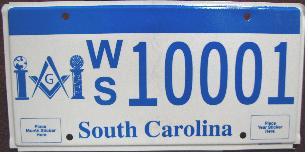From 1861 - 1865 the United States went through what we now call The Civil War. It was sedition, beginning with the assault on Fort Sumter in April 1861. The flag of the rebellion we now call The Confederate Flag.
 |
| graphic from Wikipedia |
This flag is seen by some as a symbol of ancestral pride, but others see it as a symbol of racism, slavery and oppression. In either case, it is an historic symbol of sedition. The four years of the Civil War, sometimes called
the War of the Northern Aggression in parts of the Deep South, ended slavery in the United States but did not end racism with a tiered class system. The Civil Rights Movement of the twentieth century was very much an extension of the Civil War.
Lexington, Virginia is in the western part of the state and only about sixty miles from the Courthouse at Appomattox where General Lee surrendered to General Grant. In September 2011, Lexington created an ordinance that restricts flags on city poles to the national, state, and city flags. The
Sons of Confederate Veterans object.
The Stonewall Brigade argues in a lawsuit filed in Roanoke federal court on Thursday that their constitutional free expression rights have been violated.
"When someone says 'we're not going to allow you to express yourself because we don't like what you have to say,' that's a subjective determination, and that's not allowable under the First Amendment," Brigade Commander Brandon Dorsey said.
The city stands by its decision.
Lexington City Manager Jon Ellestad, said the flag ban intended to stop the light poles from being used as a public forum and reserve them for city use only.
"Much of the complaint we received from the community was the perception by a number of people that the Confederate flag is associated with slavery, and they did not want to have the community portrayed that way," Ellestad said.
The
Rutherford Institute, supporters of religious bigotry in the guise of liberty, is taking the case.
“The First Amendment was penned by the Framers of the Constitution to protect our ideas and speech, both the popular and the unpopular,” stated John W. Whitehead, president of The Rutherford Institute. “The issue here is not whether the Confederate flag should be displayed but whether we, as Americans, remain committed to the idea of free speech. If we allow the censoring of something simply because it may be controversial, we open the door for the government to discard anything deemed disturbing or offensive.”
Freedom of speech has limits, so crying fire in a crowded theater is not protected speech. One cannot take advantage of the First Amendment to avoid prosecution for fomenting a riot. Flying the Confederate Flag is a strong statement, one that has the potential to stir up a riot. It is not simple speech, it is hate speech.
Do the Sons of Confederate Veterans have a right to exist and to fly a flag of sedition? Yes and yes. But that does not mean that they have the right to use public land and facilities to exhibit their flag of historic animosity. It is past time for all of us in the United States to move beyond racism and drop the old symbols of subjugation.

